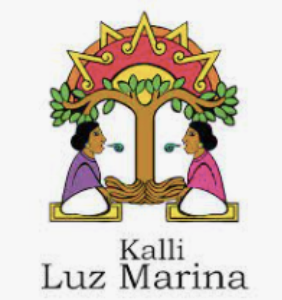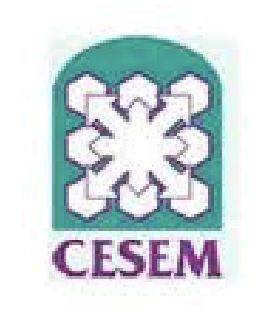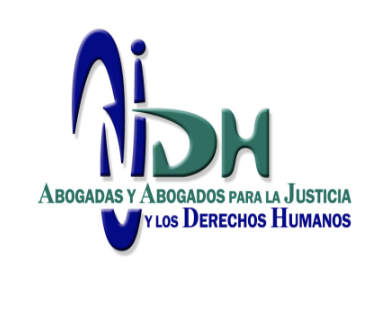What is the status of the case?
The case was referred by the Inter-American Commission on Human Rights to the Inter-American Court on Human Rights in July 2023. The Court held a public hearing on January 30, 2025—a crucial step in the fight for justice for Ernestina and her family. A favorable decision would hold the Mexican State accountable, order reparations for her family, and push for systemic reforms to protect Indigenous women from violence and prevent future abuses. Another critical issue at stake is society’s right to truth and access to information, especially in the context of serious human rights violations.
Tags
Share
When President Calderon began his “war on drugs” in 2006, Mexico began to increase the military’s presence throughout the entire country, including Indigenous communities that were not previously consulted about the militarization of their territory. Since then, this militarization policy that has continued under subsequent administrations, the number of serious human rights violations has dramatically increased in Mexico.
This case relates to the sexual assault, torture, and subsequent death of 73-year-old Nahua Indigenous woman Ernestina Rosario Ascencio, by members of the Mexican army on February 25, 2007, in the Sierra of Zongolica in Veracruz. Her attack was worsened by the State’s lack of adequate and timely medical care that could have saved Ernestina’s life. But the case is also about the lengths to which the Government went to try to cover up and protect the perpetrators and all the suffering caused to Ernestina’s family members and community.
Why is this a key case?
Indigenous women in Mexico continue to face severe repercussions from the country’s militarization policies, including gender-based violence. Numerous instances of abuse remain in impunity, driven by the government’s desire to conceal these atrocities. The case of Mrs. Ernestina serves as a stark illustration not only of the violence that Indigenous women have endured for decades but also of the discrimination that plagues Indigenous peoples when trying to access basic services and healthcare or try to seek justice in Mexico.
How is RFK Human Rights supporting this case?
In July 2023, RFK Human Rights joined four Mexican-based organizations that have been representing Mrs. Ernestina’s family in their quest for truth and justice in Mexico and before the Inter-American Human Rights System.
Name of the case (as it appears in the respective legal mechanism)
Ernestina Ascencio Rosario and other vs. México
Month/Year of filing
December 2012 (RFK Human Rights joined as co-counsel in 2023)
Legal mechanism in which the case is being litigated
Inter-American Court on Human Rights
Rights and legal instruments alleged violated (or found to have been violated)
Article 5 (personal integrity), Article 11 (honor and dignity), Article 4 (life), Article 26 (health) Violation of Articles 8.1 (judicial guarantees), 25.1 (judicial protection), and 24 (equality), Article 13 (freedom of thought and expression), Article 7 (personal freedom) of the American Convention on Human Rights.
Article 1 (The States Parties undertake to prevent and punish torture), Article 6 (States Parties shall take effective measures to prevent and punish torture within their jurisdiction) of the Inter-American Convention to Prevent and Punish Torture (IACPPT).
Article 7 (The States Parties condemn all forms of violence against women) of the Belém do Pará Convention.
Procedural stage
The case is currently pending before the Inter-American Court on Human Rights.
Counsel
Abogadas y Abogados para la Justicia y los Derechos Humanos A.C., Centro de Servicios Municipales Heriberto Jara, A.C. (CESEM), Coordinadora Nacional de Mujeres Indígenas (CONAMI), Kalli Luz Marina A.C. and RFK Human Rights.
Case Partners
-

Coordinadora Nacional de Mujeres Indígenas (CONAMI)
We partnered to seek justice for indigenous populations in Mexico, and in particular, indigenous women who have been victims of gender-based violence by members of the Mexican military.
-

Kalli Luz Marina A.C.
We partnered to seek justice for indigenous populations in Mexico, and in particular, indigenous women who have been victims of gender-based violence by members of the Mexican military.
-

Centro de Servicios Municipales Heriberto Jara, A.C. (CESEM)
We partnered to seek justice for indigenous populations in Mexico, and in particular, indigenous women who have been victims of gender-based violence by members of the Mexican military.
-

Abogadas y Abogados para la Justicia y los Derechos Humanos A.C.
We partnered to continue seeking justice for Mrs. Ernestina’s family, and advancing the rights of Indigenous women in Mexico.
-

The International Institute on Race, Equality and Human Rights
We partnered to continue seeking justice for Mrs. Ernestina’s family, and advancing the rights of Indigenous women in Mexico.

